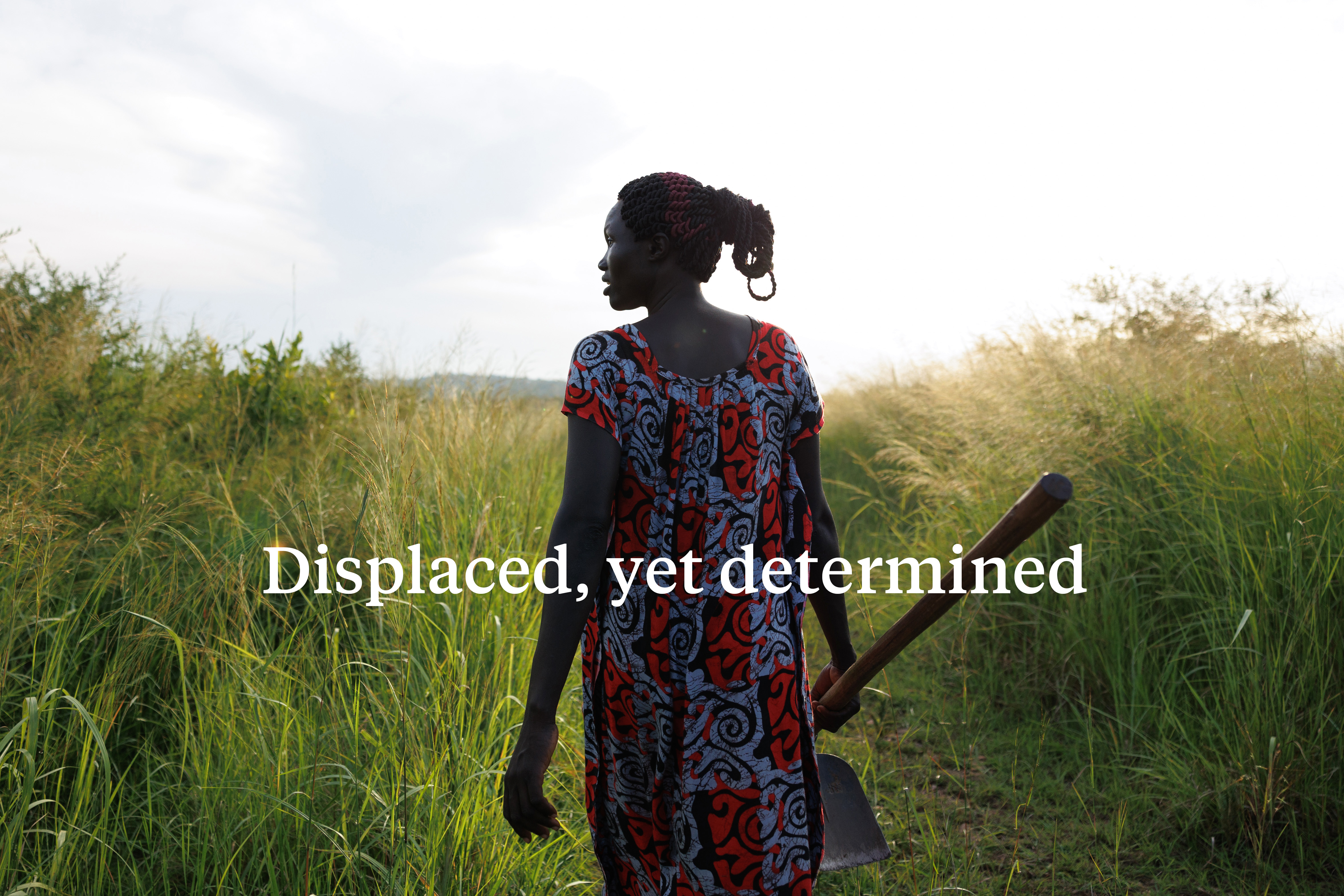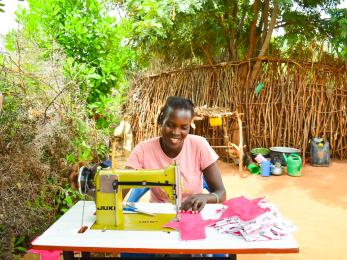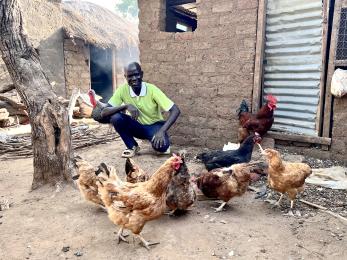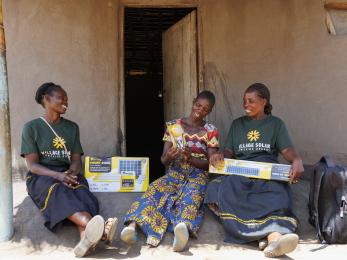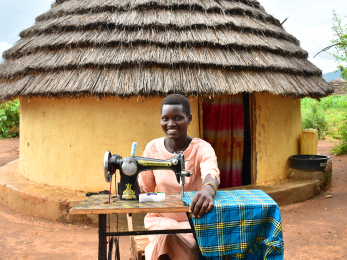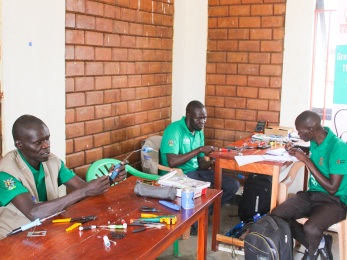Breadcrumb
Uganda
Mercy Corps has worked in Uganda since 2006 to help millions of Ugandans and refugees build a path to a stronger tomorrow. In 2024, our work reached over 260,000 people across the country.
The context
Uganda has a rapidly growing and youthful population, with more than half under the age of 18. The country has made notable progress in rebuilding from past conflicts, with increasing stability and economic growth. Uganda also plays a key role in the region as a place of refuge, currently hosting over 1.8 million people displaced by conflict in South Sudan and the Democratic Republic of the Congo—making it the largest refugee-hosting country in Africa.
Climate change and extreme weather events have grown across Uganda. Erratic rainfall patterns have caused prolonged droughts, severe floods, and landslides—displacing households and exacerbating challenges for communities who rely on agriculture for their livelihoods. Declining crop yields and dwindling livestock intensifies food insecurity, leading to widespread malnutrition. According to the World Food Program, 29% of children under five are stunted, a condition of impaired growth due to undernourishment.
The devastating effects of climate change have also fueled conflict across the region. Due to drought and shrinking grazing land, competition over scarce resources has led to conflict over access to water, grazing areas, and fertile land. These conflicts are further straining already fragile communities, as families struggle to protect their livelihoods and provide for their children amidst rising insecurity.
Our impact
Through partnerships with local governments and organizations, Mercy Corps supports communities as they build economically secure and climate-resilient futures. Our programs make an impact across these areas:
Supporting sustainable livelihood opportunities
Mercy Corps is supporting refugees and host communities in Uganda to build a path to self-reliance. Our programs provide the skills, connections, and capital to support refugees as they establish small businesses while also collaborating with local markets to build a network where refugee entrepreneurs can succeed.
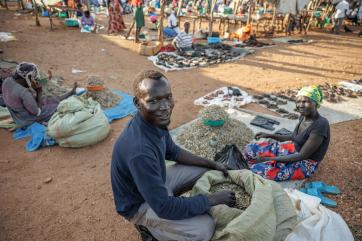
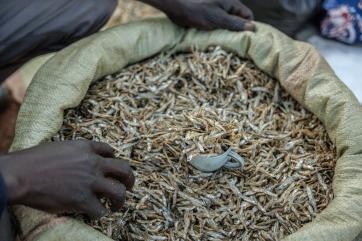
By collaborating with public and private sectors, Mercy Corps is improving livelihood opportunities for young people. Our programs offer access to formal education, trainings on financial literacy and civic engagement. Young people use digital tools to build skills, find job opportunities, start e-commerce businesses, and more.
Strengthening climate resilience to increase food security
Smallholder farmers are adopting more sustainable solutions to increase resilience to climate change and increase crop yields. Mercy Corps is supporting farmers in northern Uganda, including women, youth, and refugee farming communities, by linking them to solar irrigation technology—a more sustainable solution for farmers with low incomes who were previously unable to grow crops during prolonged droughts. Mercy Corps works with well-established private sector partners, supply chain networks, and agricultural experts to provide farmers with both access to solar power and business training on the best practices to sell their increased crops. Our programs help to increase food security by improving livelihoods for farmers to purchase more groceries while also strengthening the availability of food for the wider community using a more sustainable approach.
Building more peaceful solutions for all communities
Mercy Corps is committed to promoting peace and good governance with a focus on resolving conflicts related to natural resources. Across northeastern and western Uganda, our multifaceted programs strengthen women’s leadership to help manage natural resources sustainably and reduce conflicts. By recognizing gender roles and power structures—both at the state and community levels—communities can help shape a more inclusive peacebuilding strategy. Through community-led initiatives, our programs promote climate adaptation strategies, mitigates conflict, and ensures that women and girls are as key leaders in building climate resilience for peace.
